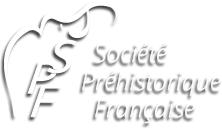 Nouvelles parutions hors SPF
Nouvelles parutions hors SPF 

 |
[Néolithique] Ian Hodder & Christina Tsoraki (2022) - Communities at Work: The Making of Çatalhöyük, Ankara, British Institute at Ankara, 375 p. EAN 9781912090488 78,00 €. The Neolithic site of Çatalhöyük has been world famous since the 1960s when excavations conducted by Mellaart revealed the large size and dense occupation of the settlement, as well as spectacular wall paintings and reliefs in the houses. This volume discusses general themes that have emerged in the analysis and interpretation of the results of excavations undertaken at Çatalhöyük between 2009 and 2017, although many authors also discuss data generated through the whole 25-year period of excavation by the Çatalhöyük Research Project since 1993. This volume scrutinizes Çatalhöyük as the by-product of the activities of a community residing in central Turkey 9,000 years ago, but also as the outcome of the interactions of a community of researchers with wide-ranging theoretical perspectives and methodological approaches. The volume commences with an overview of community engagement practices and of the ways different audiences have interacted with the site through the life of the project. It then considers the differences in approach of the Mellaart and recent excavations and reflects on different methodological perspectives that have been used at the site. It synthesizes the diverse array of environmental resources that would have been used in different times of the year. The ways in which the community at Çatalhöyük was held together, but also how community dynamics may have changed over time, are considered through the analysis of open areas, house architecture and contents, and the sequence of activities in houses. Modeling changes in practices over time shows that the effects of new introductions such as cooking pottery played out over many phases of occupation. The evidence for violence at the site is re-evaluated integrating the analysis of human remains and different forms of artifacts such as projectile points, clay balls and maceheads. The use of pigments on house surfaces, objects and human bodies and the social practices surrounding these practices are considered. The diversity of themes discussed in this volume captures the multifaceted nature of Çatalhöyük. |


